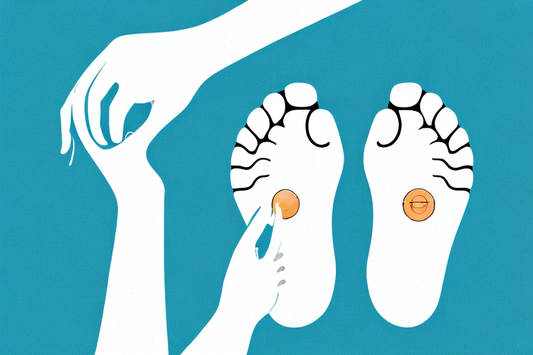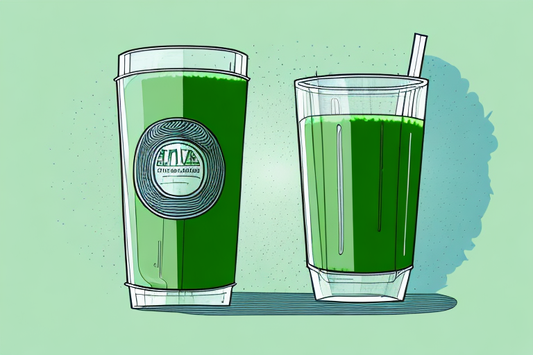
What You Can Do to Treat Peripheral Neuropathy at Home
Peripheral neuropathy refers to damage to the peripheral nerves outside the brain and spinal cord. As the network of nerves that connects the brain and spinal cord to other parts of the body, peripheral nerves are responsible for controlling and regulating various bodily functions, including movement and sensation. If left untreated, peripheral neuropathy can cause debilitating pain, weakness, and numbness, making it difficult to carry out daily activities. Though there is no single cure for peripheral neuropathy, there are various at-home treatments that can help manage your symptoms and improve your quality of life.
Understanding Peripheral Neuropathy
What is Peripheral Neuropathy?
Peripheral neuropathy is a condition that occurs when the peripheral nerves are damaged, resulting in a disruption of the signals that control sensation and movement. Peripheral nerves are responsible for transmitting information from the brain and spinal cord to the rest of the body. When these nerves are damaged, the signals can be interrupted or distorted, leading to a variety of symptoms.
Peripheral neuropathy can occur in any part of the body, but it is most commonly observed in the hands and feet. The symptoms can range from mild to severe and can have a significant impact on a person's quality of life.
Causes of Peripheral Neuropathy
Peripheral neuropathy can be caused by a variety of factors, and the cause of neuropathy can greatly influence the type and severity of the symptoms experienced. Some of the most common causes of peripheral neuropathy include:
- Diabetes: High blood sugar levels can damage the nerves over time, leading to neuropathy.
- Physical injury or trauma: Accidents or injuries that damage the nerves can lead to neuropathy.
- Infections, such as shingles or Lyme disease: Certain infections can cause inflammation and damage to the nerves.
- Exposure to toxins and chemicals: Exposure to certain chemicals and toxins can damage the nerves and lead to neuropathy.
- Autoimmune disorders, such as rheumatoid arthritis: The immune system can mistakenly attack the nerves, leading to neuropathy.
- Metabolic and endocrine disorders, such as hypothyroidism or kidney disease: Disorders that affect the metabolism or endocrine system can lead to nerve damage.
Symptoms and Diagnosis
The symptoms of peripheral neuropathy can vary widely depending on the location and severity of the nerve damage. However, some common symptoms include:
- Numbness or tingling in the hands and feet: This is often the first symptom of neuropathy.
- Sharp or shooting pain: Some people with neuropathy experience intense pain that feels like an electric shock.
- Weakness or muscle damage: Neuropathy can cause muscle weakness and even muscle wasting over time.
- Difficulty walking or maintaining balance: Neuropathy can affect a person's ability to walk or maintain balance, leading to falls and other injuries.
- Sensitivity to touch or temperature: Some people with neuropathy experience extreme sensitivity to touch or temperature changes.
Diagnosing peripheral neuropathy can be challenging, as it shares similarities with other medical conditions. However, several specialized tests can be used to diagnose peripheral neuropathy, including neurological exams, electromyography (EMG), and nerve conduction studies. These tests can help identify the location and extent of nerve damage, which can guide treatment decisions.
If you are experiencing symptoms of peripheral neuropathy, it is important to seek medical attention. Early diagnosis and treatment can help prevent further nerve damage and improve your quality of life.
Lifestyle Changes for Managing Peripheral Neuropathy
Managing peripheral neuropathy can involve a range of lifestyle changes that help reduce pain and discomfort while improving overall physical health. The following are beneficial lifestyle changes for managing peripheral neuropathy:
Exercise and Physical Activity
Exercise and physical activity can help improve blood flow and circulation, reduce inflammation, and promote the regeneration of damaged nerves. Physical activity can also help reduce symptoms of depression and anxiety, which can occur alongside peripheral neuropathy. However, it is important to choose activities that align with your physical abilities and limitations. Some recommended exercises for peripheral neuropathy include:
- Walking or jogging
- Swimming or water aerobics
- Cycling or stationary biking
- Yoga or gentle stretching
Healthy Diet and Nutrition
A healthy diet can help reduce inflammation, maintain a healthy weight, and promote overall physical health. Some dietary changes that can help manage peripheral neuropathy include:
- Consume a balanced diet that includes a variety of fruits, vegetables, whole grains, lean proteins, and healthy fats.
- Avoid processed and sugary foods that can contribute to inflammation and weight gain.
- Stay hydrated by drinking plenty of water throughout the day.
- Limit alcohol consumption, as it can damage nerves and exacerbate peripheral neuropathy symptoms.
Stress Management and Relaxation Techniques
Stress can exacerbate the symptoms of peripheral neuropathy and cause additional physical and mental health complications. Stress management techniques, such as meditation, deep breathing, and mindfulness, can help reduce stress and promote relaxation. Other relaxation techniques that can help manage peripheral neuropathy symptoms include massage, acupuncture, and aromatherapy.
Prioritizing Sleep and Rest
Getting enough rest and sleep is essential for managing peripheral neuropathy symptoms and promoting overall physical and mental health. Though the amount of sleep needed varies from person to person, most adults require between 7-9 hours of sleep per night. Establish a regular sleep schedule and prioritize restful activities, such as reading or listening to music, before bed to promote better sleep.
Over-the-Counter Remedies
Over-the-counter remedies can help manage peripheral neuropathy symptoms and reduce pain and discomfort. Though these remedies may not provide a cure for peripheral neuropathy, they can be beneficial for managing symptoms in the short term.
Pain Relievers and Anti-Inflammatory Medications
Over-the-counter pain relievers and anti-inflammatory medications, such as ibuprofen or acetaminophen, can help reduce pain and swelling associated with peripheral neuropathy. However, it is important to speak with a healthcare provider before taking any new medication, as some over-the-counter remedies can interact with other prescribed medications.
Topical Treatments and Creams
Topical creams and treatments, such as lidocaine or capsaicin creams, can help reduce pain and discomfort associated with peripheral neuropathy. These treatments work by numbing the nerves or reducing inflammation in the affected area.
Vitamin and Mineral Supplements
Vitamin and mineral supplements, such as vitamin B12, vitamin D, and magnesium, can help support nerve health and reduce inflammation. Speak with a healthcare provider before taking any new supplement, as some supplements can interact with other medications or cause adverse side effects.
Alternative and Complementary Therapies
Alternative and complementary therapies can be used in conjunction with traditional medical treatments to help manage peripheral neuropathy symptoms. Though not a cure for peripheral neuropathy, these therapies can help reduce pain and discomfort while promoting relaxation and overall physical health.
Acupuncture and Acupressure
Acupuncture and acupressure are traditional Chinese therapies that involve the insertion of thin needles or the application of pressure to specific points on the body. These therapies can help reduce pain and inflammation in the affected nerve area and promote overall physical and mental relaxation.
Massage Therapy
Massage therapy can help reduce muscle tension and promote relaxation and circulation. In addition, massage therapy can help reduce symptoms of depression and anxiety, which can occur alongside peripheral neuropathy.
Herbal Remedies and Supplements
Herbal remedies and supplements, such as valerian root or evening primrose oil, can help reduce pain and inflammation associated with peripheral neuropathy. However, speak with a healthcare provider before taking any new herbal remedy or supplement, as some remedies can interact with other medications or cause adverse side effects.
Aromatherapy and Essential Oils
Aromatherapy and essential oils can help promote relaxation and reduce symptoms of anxiety and depression. Some essential oils, such as lavender or peppermint oil, can also help reduce pain and inflammation associated with peripheral neuropathy. However, it is important to speak with a healthcare provider before using essential oils, as some oils can cause adverse reactions or interact with other medications.
Though there is no cure for peripheral neuropathy, there are various at-home treatments and remedies that can help manage symptoms and promote overall physical and mental health. By incorporating healthy lifestyle changes, over-the-counter remedies, and alternative or complementary therapies, you can improve your quality of life and better manage the symptoms of peripheral neuropathy.




